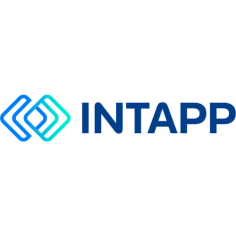The new legal era: How the AI workers of the future will fuel new business growth
The rise of in-house corporate legal teams is indicative of the beginning of the ‘Empowered Client’ era – clients are now frequently well-informed about pricing, value for money and competitive alternatives. This emerging ‘buyer’s market’ has led to firms encumbered with complex RFP processes, and more involvement with client procurement teams.
In today’s legal sector, to win and retain in-house business, firms need to deliver a modern and transparent experience when working with these clients, and reassure them that they are working together in a highly secure environment. Corporate legal teams are not just looking for legal support; they are looking for a business partner.
Moreover, as deregulation has changed the dynamics of the legal sector bringing increasing competition, solicitors explore their newfound freedom to offer “unreserved activities”, operating as consulting freelancers to firms, and undercutting the more established barristers’ chambers. Consequently, firms have arguably gone from a position of power to a position of vulnerability.
The Client-Centric Market
In an increasingly competitive environment, firms need to be swift, and compelling, when responding to RFPs. Yet, pulling together the right credentials and putting forward the most appropriate staff can be a challenge. The rise of artificial intelligence and intelligent automation has provided a possible route to achieving these new business necessities. The advantages of intelligent automation can be broadly categorised into three main pillars:
Expediting credential identification/gathering
Superior data management/transfer
Faster on-boarding and client approval
Intelligent automation can expedite the process of identifying the right credentials and personnel within the team. The ability to tag and manage information across an organisation can; enable a faster response, which in turn will ensure this is based on a more comprehensive set of information. This therefore supports the process of winning and on-boarding clients. This goes some way in helping barrister’s chambers maintain the same agility as their new freelancing competition.
However, intelligent automation doesn’t just allow for more effective ‘back-office’ administration – it breaks down many of the boundaries that have led to the formation of silos within many firms. The use of AI can facilitate an easier transfer of data amongst separate silos, requiring less human intervention and signoff, ensuring that the appropriate sections within a firm can quickly access the requisite information they need to complete their tasks. These new tools can prevent decentralisation and bring partners together, which ultimately benefits both the firm and the client, facilitating a far more client-centric approach.
New Opportunities
The agility of new freelance competitors, combined with the propensity for clients to be more ‘hands on’ may seem daunting, but those firms that adapt will find themselves in a better position than beforehand: firms can match the agility of this new breed of solicitor competition, whilst retaining the larger workforce, wealth of industry experience and strong client relationships that cemented their position to begin with.
There are, no doubt, a number of firms lamenting the changing nature of the legal sector. However, many are seeing that at the heart of this change, there is a significant opportunity to be seized; firms that cannot adapt quick enough will be pushed to the periphery by those who accept the realities of practicing law in 2019. Those who adopt the emerging technology will develop a keen competitive edge over those who drag their feet, seeking a return to the past.
Chris Turk, regional vice president EMEA, Intapp



